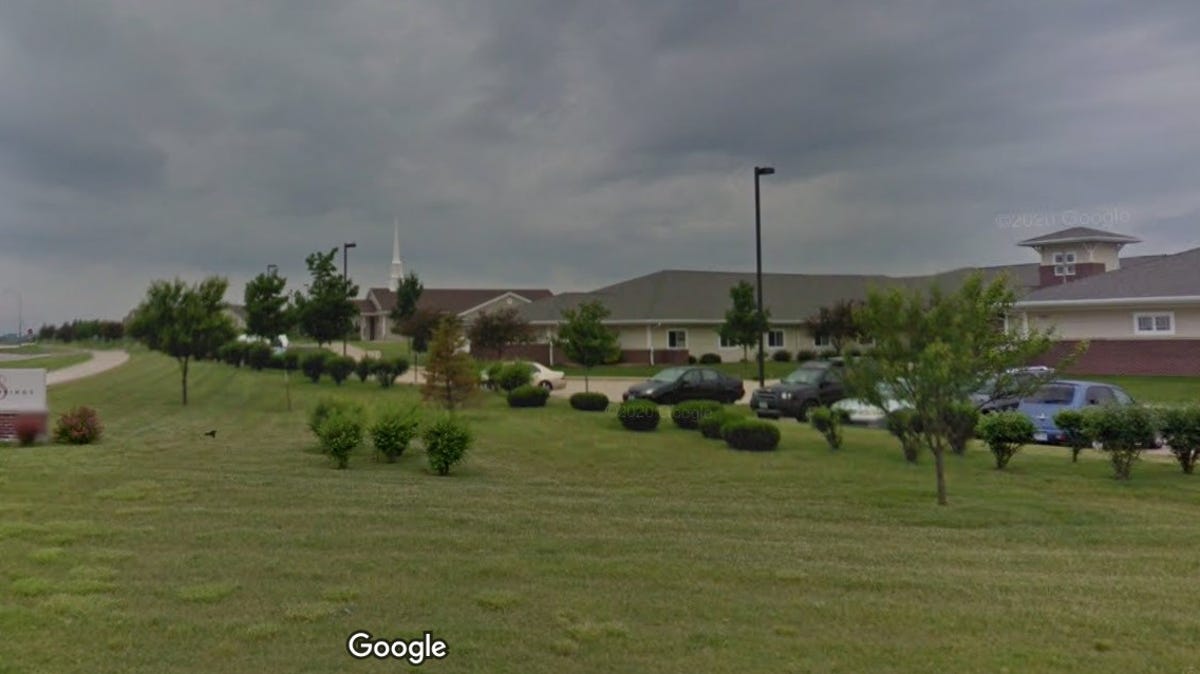Vermont
Made in Vermont: Fabric and Feed

FLETCHER, Vt. (WCAX) – A Fletcher farmstead is Trista Ringer’s personal piece of paradise.
“I live in such a beautiful place, I love being outside, I love being with our animals,” she said. “It’s the simple life, it’s simple living. It’s slow, not getting caught up in the hustle and all of the noise.”
The only noise on this farm is the sound of the animals. But inside, the clucks and crows are drowned out by the sound of a sewing machine. While the animals on the farm might steal your heart, it’s what’s made inside the farmhouse that steals the show. That’s where you can find Ringer’s studio, where she makes her stunning quilts for her business, Fabric and Feed.
“A lot of folks say that quilting is in my DNA. I learned to quilt from my mother, my mother taught my grandmother to quilt, although she was a sewist. My great-grandmother was a sewist in the Winooski Mills,” Ringer explained.
Trista learned how to quilt at age 7 and has been smitten ever since. But as she got older, it became harder and harder to find the time for her beloved pastime.
“Trying to do it in stolen moments in the evening, like feeling like I deserve the time to quilt… when really I don’t need to deserve the time, I can just do it,” she said. For years, Ringer turned out these works of art to give as gifts to friends and family. But eventually, people starting offering her cash for her quilts.
“Seeing that other people valued my art really helped me switch my mindset and see the value in my own pieces,” she said.
Now, her hobby pays the bills. From wall hangings to giant bed quilts to teeny tiny mug rugs, Ringer runs quite a wait for her timeless crafts. While she does take commissions, these designs are driven by the beauty around her.
“I mainly create my own patterns and I take a lot of my inspiration from nature,” she said.
Ringer calls her craft peaceful and meditative, and says she loves making heirloom pieces that will stand the test of time, enjoyed by generations to come. And, it all starts on the farm.
“I also will grow some of my own Indigo and dye my own fabric. And so it’s that whole cycle of being able to start with the plant, to fabric, to a quilt that is so special to be able to do,” she said.
Every day, Ringer gets to do something she loves in a place she loves. And, her customers get beautiful quilts that are made in Vermont.
Copyright 2024 WCAX. All rights reserved.

Vermont
Civil rights advocates urge lawmakers to add equal protection clause to Vermont Constitution

As marginalized populations ponder the future of civil liberties under a U.S. Supreme Court that’s already reversed abortion rights and affirmative action policies, the Legislature is looking to strengthen anti-discrimination laws in Vermont by adding an equal protection clause to the state’s constitution.
The Senate late last month unanimously advanced a proposed constitutional amendment, known as PR.4, that would guarantee “equal treatment under the law” for nine protected classes, including race, sex, disability, gender identity and sexual orientation.
The proposal is scheduled for a House vote this week. If both chambers of the Legislature approve the measure again during the next legislative biennium, then Vermont voters will decide whether to ratify the amendment in the 2026 general election.
“The Vermont Constitution is the foundation of all Vermont law and all state government action,” said Big Hartman, executive director of the Vermont Human Rights Commission. “We believe our constitution should absolutely contain equal rights protections explicitly.”
Vermont’s motto is “Freedom and Unity.” But nowhere in the state’s constitution are there any prohibitions against discrimination based on a person’s race, sex, religion or other characteristics.
Civil rights advocates have been working for years to change that. And the campaign is gaining steam, due in part to growing concerns about landmark decisions coming out of a U.S. Supreme Court now controlled by a conservative majority of justices.
“Adding an equal protection clause to the Vermont Constitution would allow Vermont to develop its own homegrown, more robust protection of people from discrimination.”
Peter Teachout, Vermont Law School
In the 2022, the Supreme Court overturned Roe v. Wade. In 2023, the court issued a ruling that ends affirmative action policies in college admissions. The court has issued similarly controversial decisions related to voting rights and tribal sovereignty.
Rev. Mark Hughes, the executive director of the Vermont Racial Justice Alliance, told Vermont Public that the court’s rulings force an urgent conversation about what the future is going to look like for groups whose rights and liberties hinge on the court’s interpretation of the federal constitution.
“Since we’re having this conversation, it’s important to ask ourselves the question, ‘Is there any way that the state of Vermont can extend the protection of its citizens, particularly those in marginalized communities, given the political climate that we’re actually in right now?’” Hughes said.
Sophie Stephens
/
Vermont Public
The Vermont Racial Justice Alliance, the Vermont Commission on Women and the Vermont Office of Racial Equity all say the state can and should extend protections to those communities. And they say Vermont can accomplish the task by amending its constitution.
Just as Vermont voters added a reproductive liberty amendment to the state constitution after the overturning of Roe. v. Wade, Hughes said, the state now needs a similar safeguard against discrimination.
The Vermont Racial Justice Alliance led the campaign for an amendment in 2022 that repealed constitutional language stating that a person could be held as a “servant, slave or apprentice … for the payment of debts, damages, fines, costs or the like.”
“Addressing systemic racism … requires a comprehensive approach that includes legal, legislative, social, cultural and other efforts to promote equity, justice and equality for all,” Hughes said. “This is not a silver bullet. It’s not going to do it by itself. It’s one of many tools.”
The proposed amendment would make clear that the state “shall not deny equal treatment under the law on account of” certain protected characteristics. The nine classes named in the provision advanced by the Senate are race, ethnicity, sex, religion, disability, sexual orientation, gender identity, gender expression and national origin.
“This has been a very, very long time coming.”
Cary Brown, Vermont Commission on Women
Neither legal experts nor advocates think the amendment would have any significant impact immediately upon ratification. But they say it could inform and influence court decisions over time in ways that mitigate racial and gender inequality.
That’s because it would give state courts a new touchstone for discrimination cases that come before them in the future, according to Peter Teachout, a professor at Vermont Law School who specializes in constitutional law.
Teachout said the proposed amendment could give Vermont’s Supreme Court the latitude to arrive at decisions that they wouldn’t necessarily get to if they were relying exclusively on the 14th Amendment in the U.S. Constitution, or Article 7 of the Vermont Constitution, which is the language courts often look to when considering the merits of equal protection claims.
“States can provide protections, greater protections, against discrimination than the Supreme Court has held the 14th Amendment provides against discrimination,” Teachout said. “Adding an equal protection clause to the Vermont Constitution would allow Vermont to develop its own homegrown, more robust protection of people from discrimination than you find in Supreme Court decisions today.”
Teachout, however, said the proposed amendment is not a failsafe against the sorts of outcomes people such as Hughes are worried about. If the U.S. Supreme Court, for instance, rules that college admissions policies can’t give weight to someone based on their race, then Vermont courts can’t issue rulings that contradict that precedent.
Where federal supremacy isn’t in play, Teachout said, the amendment could play a substantive role in shaping legal decisions.
And Windham County Sen. Nader Hashim, a Democrat, said it protects against a dystopian future in which Vermont’s Legislature is controlled by people who would seek to roll back the rights of protected classes enumerated in the amendment.
“I don’t know what the future holds. I don’t know who will be sitting here in 50 years or 100 years, and I don’t know what their beliefs might be,” Hashim said. “But I do know with a strong conviction that I don’t want to witness a future in my lifetime or future generations’ lifetimes in which government can pass or enforce laws that discriminate and cause division among Vermonters.”
Cary Brown, executive director of the Vermont Commission on Women, said the proposed amendment is the culmination of a decades-long campaign that began as a push to get an equal rights amendment in the U.S. Constitution.
“This has been a very, very long time coming,” Brown said.
Though the national equal rights campaign has stalled, a majority of states have since added equal protection clauses to their state constitutions. Brown said she hopes Vermont’s version will change the standard of review used by courts in assessing discrimination claims.
“Under existing sex discrimination laws, the burden of proof rests with the victim … but with this amendment, that could change the presumption of constitutionality of laws that use sex or any of the other listed classifications to treat people differently,” she said. “And the burden of demonstrating they’re constitutional would shift to the state, which would be a significant improvement.”
Have questions, comments or tips? Send us a message.
Vermont
New Hampshire Woman Wanted in Drug Overdose Death Arrested in Vermont – InDepthNH.org

By MIKE DONOGHUE, Vermont News First
WARREN, Vt. – A New Hampshire woman, who officials said is wanted in New Hampshire for failing to appear in court for two felony charges related to an overdose death of another woman in 2020, is due in a Vermont courtroom Monday afternoon after her arrest by federal and state authorities.
The U.S. Marshals Service in Burlington said it received a tip that Zanda A. Ball, 40, was hiding out in the Warren area in Central Vermont.
Deputy marshals, along with Vermont State Police began combing the community for Ball on Friday and conducted several interviews, according to Deputy Marshal Carl Staley, a supervisor with the USMS.
The Marshals Service learned Ball and a companion were looking for jobs in the Mad River Valley and claimed they were from the Claremont, N.H. area. The investigative trail eventually led to a residence on Plunkton Road in Warren, Staley said.
The dragnet ended with a short standoff at the residence. Ball and a man initially refused to come out of the residence, Vermont State Police Sgt. William Warner said.
As state police began to seek a state search warrant, the male companion exited the house and Ball eventually surrendered, Warner said.
The Vermont State Police SWAT Team, which had been practicing on Friday, had been put on alert, but did not have to respond.
Staley said the Marshals Service turned Ball over to state police, who lodged her at the Chittenden Regional Correctional Facility in South Burlington. She was ordered held for lack of $35,000 bail on a Vermont charge for being a fugitive from justice in New Hampshire.
Ball, a former employee at Alice Peck Day Memorial Hospital in Lebanon, N.H., is due for arraignment in Vermont Superior Court in Barre on Monday afternoon.
With the standoff underway, Vermont State Police alerted local school officials. The Harwood Unified Union School District issued a notice that it was rerouting buses with students heading home from both Warren Elementary and the Harwood Union Middle/High School.
A Merrimack County, N.H. grand jury indicted Ball on Sept. 25, 2020 on two felony charges of dispensing a controlled drug – with one count with death resulting, records show.
Ball, then of Sunapee, is charged with selling fentanyl to Gina L. Carr, 29, of Sutton, N.H. and that she later died from the drug, then-New Hampshire Attorney General Gordon J. MacDonald said at the time.
Sunapee Police Sgt. Nick Boisvert said Friday his department last fall put out a local community alert when Ball failed to appear for one of her court hearings in the fatal overdose case. He said local police eventually believed Ball had left town, but hoped somebody could provide a lead.
This week the Marshals Service in Vermont working with their colleagues from New Hampshire got a possible lead and it netted the arrest.
Carr had a promising career in education when she died, according to the Nashua Telegraph. She taught skiing and worked as a paraprofessional serving students with disabilities at Kearsarge Regional School District, the Telegraph reported. The University of New Hampshire graduate majored in horticulture.
Carr was a Nashua native and grew up in Merrimack and Litchfield before she moved with her family to Sutton in 2004, according to her obituary. She left behind two children, including a 1-week-old daughter and 3-year-old son, records show.
Vermont
New wake boating regulations go into effect

BURLINGTON, Vt. (WCAX) – Vermont’s new wake boat rules are now in effect for boating season, but Vermont game wardens say this season is all about education rather than enforcement. As of April 15th, a wake boat can only operate in designated zones. A wake sports zone is an area of at least 50 acres, at least 20 feet deep, 200 feet wide and 500 feet from shore. Lake Champlain, Memphremagog, Connecticut River Reservoirs and Wallace Pond do not have defined wake sports zones.
“This year, education is gonna be out prime goal, do I see tickets being issued this year? I’m hard pressed to say. I can’t say for sure because of certain situations.” said Segeant Jenna Reed with Warden Service
Fish and Wildlife has 29 wardens who will be out in the water, hoping to educate rather than enforce. The Department of Environmental Conservation will be putting up signs and social media posts to remind people of the new restrictions.
Copyright 2024 WCAX. All rights reserved.
-

 Politics1 week ago
Politics1 week agoColumbia University’s policy-making senate votes for resolution calling to investigate school’s leadership
-

 News1 week ago
News1 week agoBoth sides prepare as Florida's six-week abortion ban is set to take effect Wednesday
-

 Politics1 week ago
Politics1 week agoGOP Rep. Bill Posey won't seek re-election, endorses former Florida Senate President as replacement
-

 World1 week ago
World1 week agoBrussels, my love? MEPs check out of Strasbourg after 5 eventful years
-

 Politics1 week ago
Politics1 week agoHouse Republicans brace for spring legislative sprint with one less GOP vote
-

 World1 week ago
World1 week agoAt least four dead in US after dozens of tornadoes rip through Oklahoma
-

 World1 week ago
World1 week agoRussian forces gained partial control of Donetsk's Ocheretyne town
-

 Politics1 week ago
Politics1 week agoAnti-Trump DA's no-show at debate leaves challenger facing off against empty podium

















